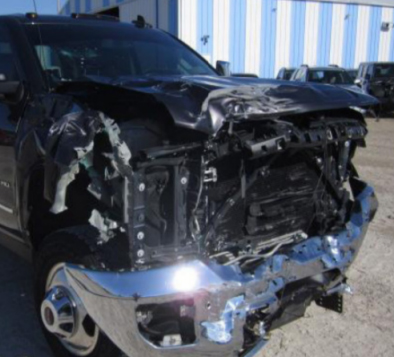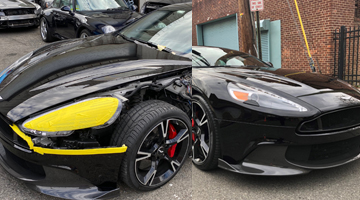TOTAL LOSSES IN 2020
By John Walczuk
The year 2020 is slowly winding to a close down a long and twisted road that has impacted the automobile repair industry. Drivers spent far less time on the road this year, therefore less accidents and less business for body shops. Those who did drive and relied on their insurance carriers to do right by them got terrible directions.
Since March of 2020, insurance carriers have offered 20% or more below value settlements when vehicles are totaled. To date, only California has informed insurance carriers not to take advantage of vehicle owners in an effort to stem biased settlements. This single state action has not stopped or mitigated what we see across the country.

The insurance carriers’ greed is an issue we are all aware of and is evident in the repair side or auto body industry. Carriers are unwilling to pay for quality parts or expect to pay
minimal hourly labor rates for repairs. This, combined with the database companies, who are the biggest offenders and continue to undervalue vehicles, results in more vehicles
being deemed a total loss, and in the end, makes the insurance companies more money. So really, why would the insurance carriers try and rein-in these database companies? The
simple answer is they wouldn’t, and that’s why consumers can’t rely just on their insurance
carriers’ words
The largest, and what appears to be the most commonly used database service, is CCC One. This company not only provides settlements that in many instances are 20+ % off of actual cash value (ACV), but they appear to decide on what, or if, an option should be reflected in a valuation. A perfect example is when a database company receives the vehicle’s window sticker, yet only some of the items on that sticker appear in the settlement
report.
Such arbitrary decision-making may not significantly impact many vehicles where there are limited options offered. However, one needs also to consider those vehicles where options are abundant and can easily add $25,000 to $75,000 to the price of a car.
Exotics are a perfect example of plentiful options and bring a base car price up significantly. In four recent settlements, this database company provided initial settlement offers of $20,000 to $30,000 under the final negotiated settlement. The majority of that difference directly relates to options not being included in the original offer.
We recently learned that this same database company, CCC One, doesn’t value any options under $750. Their “reasoning” – these options are preference items and do not add value. I find this is hard to believe, as would the vehicle owners because these options were part of the original purchase price. Hence, it appears that states are also to blame for low-ball settlement presentations and find acceptance in annual licensing fees.
While we have specifically identified one database company in our example, the three primary database providers all have some valuation issues. In the past, we detailed examples of bias by including the care taken by the adjusters who start the process of inputting vehicle information. Additionally, we have identified the supposed detailing reductions called comparative, projected sold, or just hidden in the comparative price. These errors, omissions, or direct false presentations are evident in almost every total loss settlement report.
So, we are now about to enter into 2021, and one can only assume there will be less control exercised by the states. Perhaps the licensing fees will increase, but do not expect any real oversight by our legislators.
ZB Negotiations will continue to help those who recognize what is happening.
At ZB Negotiations we handle these types of cases daily and we are here to help. Call or email us.
ZB Negotiations
ALL ARTICLES
DID YOU KNOW? ALL IS NOT LOST WHEN YOU LEASE YOUR VEHICLE

Aston Martin 2018 Vanquish S
REPAIR.......... $48,000
Diminished Value............ $43,000

